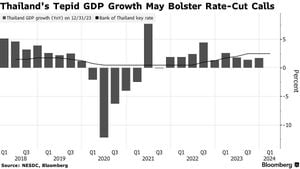Elon Musk, the controversial billionaire and newly appointed head of the Department of Government Efficiency (DOGE), has ignited significant debate by mandatorily requiring federal employees to submit weekly reports detailing their accomplishments. This move, described by Musk as necessary for government accountability, carries serious implications for federal employees, some of whom are reportedly resisting the directive.
On February 22, 2023, Musk took to social media platform X to announce, "All federal employees will soon receive emails requiring them to report what they have accomplished over the last week..." This strict ultimatum, which threatens those who fail to respond with resignation, has raised eyebrows across various government agencies.
The looming deadline for submitting these reports is set for midnight on February 24, 2023. Federal employees were instructed to summarize their achievements without disclosing any confidential information. The directive was intended to bolster accountability under the Trump administration, with Musk indicating the emails were part of efforts to help streamline governmental operations.
According to The Wall Street Journal, the message was sent out via email to personnel across key governmental departments, including the CIA and the FBI, garnering mixed reactions. Reports indicate some high-ranking officials, such as the FBI director, have urged staff to postpone their responses to Musk's demands.
Musk's audacious approach, characterized by invitations for federal employees to detail their efforts, was met with skepticism. He claimed there had been "numerous great responses from federal employees..." since his announcement. Yet, concerns about possible repercussions for non-compliance loom large. The American Federation of Government Employees has voiced strong opposition, asserting, "We will contest any illegal firings of our members and federal employees nationwide." The union has vowed to protect its members against any unlawful dismissals resulting from this directive.
Critics are questioning the legitimacy of Musk’s authority over federal personnel decisions, viewing it as overreach and indicative of the precarious balance between corporate influence and public service. Musk, who has been known for high-stakes management styles and controversial public statements, seems to be exerting pressure on the framework of government operations.
The broader ramifications of this trend were also highlighted by reactions from political commentators and current administration officials. Many are concerned about how these demands will affect government morale and the quality of work expected from civil servants, who must now balance their routines with the pressures of reporting their weekly productivity.
Beyond the immediate operational concerns, Musk's statements invited discussions surrounding the political fabric and accountability mechanisms of the government itself. Given Musk's recent remarks about international leaders, particularly his controversial comment implying Ukrainian President Volodymyr Zelensky was no longer in office—"Zelensky was fired from the job he performed"—it’s evident he is positioning himself as both a businessman and commentator on political legitimacy.
This latest spectacle aligns with Musk's broader narrative about the need for transparency and effectiveness within the government. Still, it raises questions about the balance of power and the role of state employees under unprecedented scrutiny.
The potential consequences of Musk's influence extend to the operational integrity of U.S. government agencies. This unprecedented approach begs the question: how far should non-elected officials exert control over federal employees? Against the backdrop of rising tensions between government workers and administration directives, the upcoming weeks could shape the public discourse around accountability and efficiency within federal workflows.
Despite Musk's intriguing ventures and contributions to technology, the ramifications of his push for accountability reflect the uneasy relationship between influential private figures and the public sector. Has the drive for efficiency crossed the threshold of acceptable governance? Only time will tell whether this newly mandated accountability measures become standard practice or fade as just another chapter of Musk's polarizing narrative.



